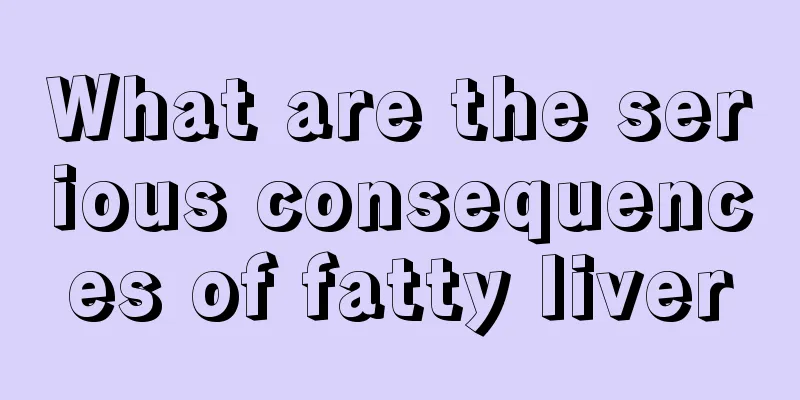Tight neck and thyroid

|
The thyroid gland is a very important gland in our body and is also a part that is prone to problems. There is a certain relationship between neck tightness and thyroid disease. If a nodular goiter occurs, the neck will feel tight. We can understand the symptoms of nodular goiter and make a comprehensive judgment based on our own situation. Next, let’s look at the situation where the thyroid nodes are too large. 1. The patient has a long-term history of simple goiter. The age of onset is generally over 30 years old. There are more women than men. The degree of thyroid enlargement varies and is often asymmetric. The number and size of nodules vary, generally there are multiple nodules, and in the early stages there may be only one nodule. The nodules are soft or slightly hard, smooth and non-tender. Sometimes the boundaries of the nodules are unclear, and the surface of the thyroid gland only feels irregular or lobed when touched. The disease progresses slowly and most patients are asymptomatic. Larger nodular goiters may cause compressive symptoms, including difficulty breathing, dysphagia, and hoarseness. Acute bleeding into a nodule may cause a sudden increase in size and pain; symptoms may subside within a few days, and an enlarged mass may decrease in size over a few weeks or longer. 2. When nodular goiter develops hyperthyroidism (Plummer's disease), the patient has symptoms such as fatigue, weight loss, palpitations, arrhythmia, heat intolerance, sweating, and irritability, but there is no local vascular murmur or tremor in the thyroid gland, exophthalmos is rare, and finger tremor is also rare. Symptoms in elderly patients are often atypical. 3. Whether the patient has a history of radiation exposure, oral medication history and family history, whether the patient comes from an area where goiter is endemic, etc. Generally, nodular goiter has a long history, with no compression symptoms and no symptoms of hyperthyroidism. Most patients do not care about it and come for medical examination only when they accidentally discover thyroid nodules. 4. If it is a hot nodule, also known as a toxic nodule, the patient is mostly over 40 to 50 years old, the nodule is of medium hardness, there are symptoms of hyperthyroidism, and even atrial fibrillation and other arrhythmias may occur. If there is bleeding, there may be pain and even fever. When the nodules are large, compression symptoms may occur, such as dysarthria, difficulty breathing, chest tightness, shortness of breath, and irritating cough. 5. For example, patients with nodular goiter from iodine-deficient areas may have low thyroid function, and clinically they may also experience slow heart rate, edema, rough skin, and anemia. A small number of patients may also develop cancer. Warm nodules are more common and can be treated with thyroid preparations, and the enlarged glands can be shrunk. Cold nodules are relatively rare. Patients with clinical hypothyroidism can be treated with thyroid preparations, but surgical treatment is often required. |
<<: What is the reason for the red neck
>>: What to do if you have a sprained neck
Recommend
The length of your fingers reveals your genetic code
The ratio of the length of the ring finger to the...
What are the early symptoms of bladder cancer
Bladder cancer is a malignant tumor. Many people ...
What to do if the urethra is red, swollen, painful and itchy
Many people always feel extreme pain in their ure...
What medicine is best for treating liver cancer? Three kinds of medicine can be used to control liver cancer
Liver cancer is a malignant disease and is usuall...
Are there any male transmission routes for hepatitis B? Take precautions to prevent future troubles
Many people do not know what the transmission rou...
Biological agents for the treatment of rheumatoid arthritis_Is it good to take biological agents for rheumatoid arthritis
Rheumatoid arthritis is very difficult to cure, a...
What are the symptoms of blood-dryness eczema?
Blood dryness eczema is not a very common disease...
Diabetes may lead to a surge in pancreatic cancer rates
60-year-old Grandma Wang is a retired teacher. Ap...
How to prevent lung cancer recurrence? Pay attention to these five points
Lung cancer is a disease that is prone to recurre...
What are the dangers of headaches caused by lack of sleep
Nowadays, not only adults but also teenagers suff...
Long-lived elderly people, they have ten surprising similarities!
Centenarians seem mysterious and elusive. There a...
What are the magical uses of prickly heat powder
Prickly heat powder can be used to treat prickly ...
What should I do if my white T-shirt turns yellow?
White clothes are very popular among people becau...
What method should be used to clean tea stains?
Tea culture is very profound. Many people have th...
Specific analysis of the symptoms of brain tumors
The nerve cells and brain cells in the brain are ...









